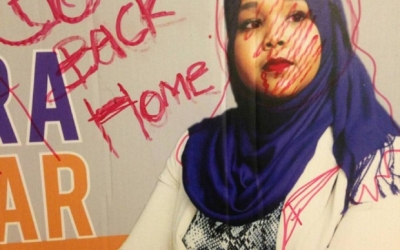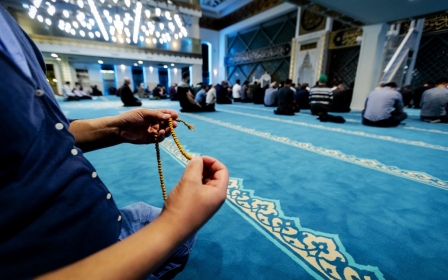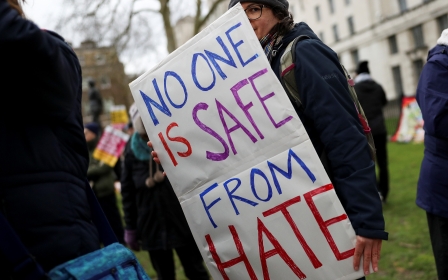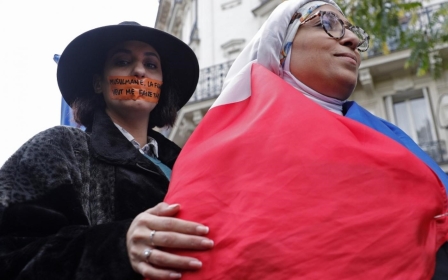Austria raids: How I was turned into a 'terrorist' overnight
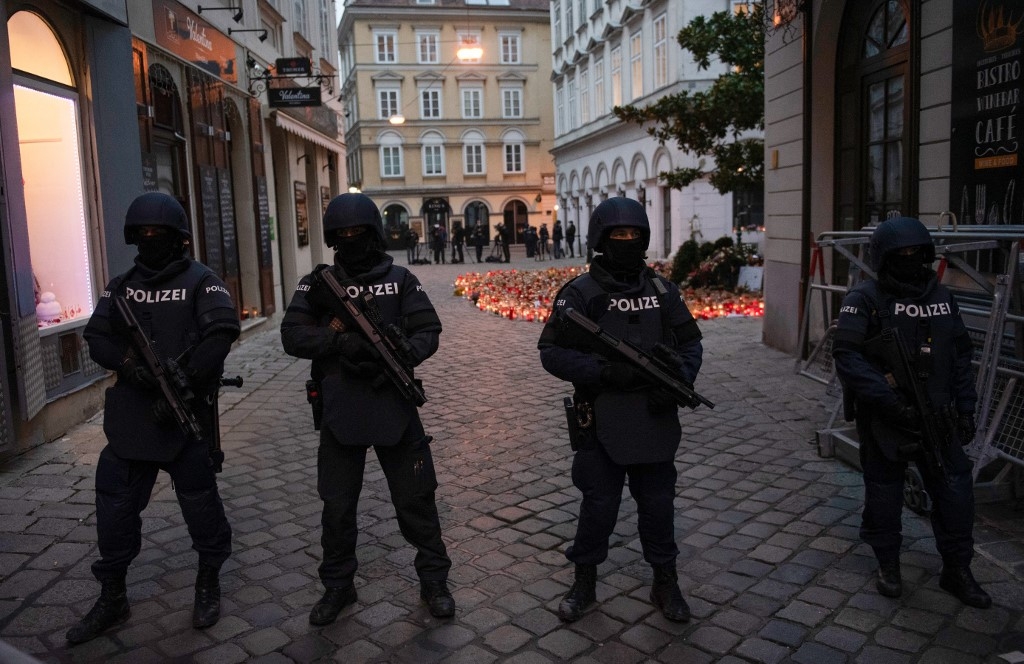
From a critical scholar analysing racism, speaking truth to power and representing the marginalised, I was turned into a “terrorist” overnight.
The use of the word "terrorism" has served as “a political weapon designed to protect the strong”, eminent thinker Edward Said wrote in the introduction to Blaming the Victims (1988). I never thought that I would feel these words as closely as I did on 9 November 2020 - nor that I would ever be imputed with such a suspicion in a country like Austria, where I was born and spent most of my life.
People were asked: What do you think of the term 'Islamophobia'? Are Muslims discriminated against in Austria? Do you wake up your wife for prayer in the morning?
Having dedicated more than a decade to critical scholarship as a political scientist, I founded an academic journal, the Islamophobia Studies Yearbook, in 2010. In 2016, I founded the European Islamophobia Report, a collective work of dozens of authors in more than 30 countries, which has become a primary resource for academics and policymakers seeking a more just society with less racism.
Since 2017, I have also been a researcher at Georgetown University’s Bridge Initiative, where we disseminate original and accessible research to inform the general public about Islamophobia.
In my position as a public scholar, I have been a harsh critic of rising anti-Muslim racism in Europe, looking at not only the obvious role Islamophobia plays in the far-right movement, but also the more subtle ways in which Muslims are excluded from power structures and criminalised by state institutions. I have used my position to speak truth to power, standing on the side of many who are not as privileged in being able to have their voices heard.
New MEE newsletter: Jerusalem Dispatch
Sign up to get the latest insights and analysis on Israel-Palestine, alongside Turkey Unpacked and other MEE newsletters
When I was awoken during the morning of 9 November last year with special forces crushing in my door, levelling their guns at me and waking up my children, I never thought it was Austrian authorities storming my private home; I initially thought it was a militant group. But once I had the search warrant in my hands, the reality hit me.
Massive police operation
The name of this so-called Operation Luxor appeared to have been given quite intentionally. Legally speaking, the allegations were severe. Along with 29 others, I was targeted in what has been described as the largest police operation in Austria since the Second World War. According to the search warrant, there was a suspicion that I was a member of a terrorist and criminal organisation that was an enemy of the state, financing terrorist activity.
From a political standpoint, the suspicion was that I was part of a network aiming to topple the Egyptian regime of President Abdel Fattah al-Sisi, destroy Israel and create a global caliphate with Jerusalem as its capital - all of this, despite the fact that I have never been actively involved in Egyptian or Israeli politics.
Thread: Since some friends & colleagues have already started spreading the word and donating: On 9 November 2020, my home in Vienna was raided by special forces. Here is what happened in a short video https://t.co/d9QNiwIiKq
— Farid Hafez (@ferithafez) March 1, 2021
Most interesting was the “evidence” authorities presented: supporting a school project led by an inter-religious board, speaking to MPs and political leaders on the phone, criticising Austria’s anti-Muslim policies, and being part of an Islamist organisation (framed as a “terrorist organisation”), which in any event is untrue.
Although the operation lasted for more than a year and a half, with more than 21,000 hours of phone tapping and more than one million photos, the suspicions could not be confirmed, which prompted the raid of our houses and confiscation of our items. No charges have been laid.
Restoring democratic order
People familiar with authoritarian regimes in the MENA region know that something like this can always happen. Allegations are invented as a means of sidelining opponents. A former colleague who came to Austria from Tunisia three decades ago told me that raids like this were the reason he left Tunisia; he never imagined something like this could happen in Austria.
While charges against any of the 30 defendants seem highly unlikely to me, the interrogations revealed a clear language. People were asked: What do you think of the term “Islamophobia”? Are Muslims discriminated against in Austria? Do you wake up your wife for prayer in the morning? Are your kids allowed to play music? Do you have non-Muslim friends? Is your daughter allowed to marry a Christian, Jew or atheist? These are just a few of the questions that should raise concerns.
Was Operation Luxor just the latest step in a series of anti-Muslim policies, ranging from the hijab ban (recently lifted by the Constitutional Court) to the inception of the Documentation Centre for Political Islam? Was it an operation designed by foreign secret services? Was it due to a shift in the administration of Austria’s secret service? Will it be the next anti-Muslim measure that the judiciary will correct?
Whatever the case, the damage has been huge, and it is more important than ever that civil society, critical scholars and opposition politicians work to restore a democratic order that does not systematically discriminate against one group and label them as “terrorists”.
The views expressed in this article belong to the author and do not necessarily reflect the editorial policy of Middle East Eye.
Middle East Eye delivers independent and unrivalled coverage and analysis of the Middle East, North Africa and beyond. To learn more about republishing this content and the associated fees, please fill out this form. More about MEE can be found here.



